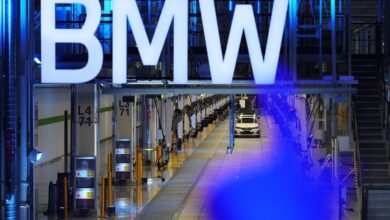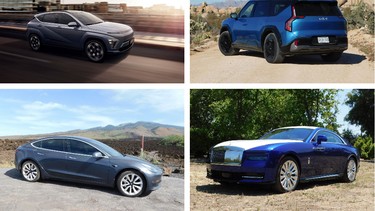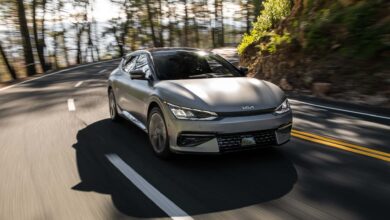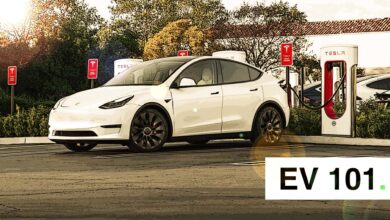Boise renters eye electric vehicles, but access to charging remains a barrier for many residents
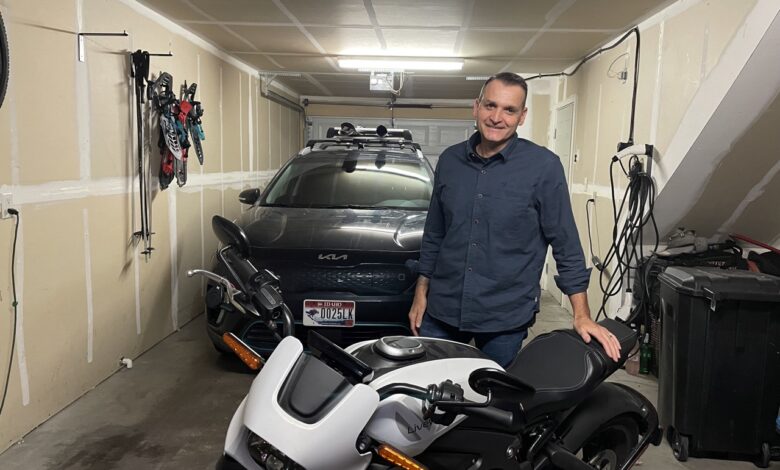
Hal Roseberry and his wife’s commutes are all electric and they wouldn’t have it any other way.
In the garage of their rented Southeast Boise townhouse, they have a full stable of electric vehicle options. There’s the fully electric Kia Niro, the plug-in hybrid Chevy Volt and an EV motorcycle that can hug curvy Idaho mountain roads even better than the gas-powered bikes Roseberry worked on at Harley Davidson for years.
Finding a house with a garage to more easily charge their cars was a priority upon moving back to Boise after nearly a decade in California and Oregon. At first, they had to leave their cars plugged in nearly constantly due to the low level of charging available from their traditional garage outlets which need up to 40 hours to fully charge a typical electric vehicle.
Their charging got a boost last year when their landlord joined the trend of properties offering amenities for electric vehicles and installed two EV chargers in every unit in their complex. This allows their cars to go from empty to fully charged if they’re plugged in overnight.
“With level two charging at home, it’s phenomenal to drive an electric car,” Roseberry said. “Every morning you wake up with a full tank of gas. It’s just awesome.”
But, not every renter hoping to ditch their gas-powered car is so lucky. Renters across the city who don’t have the ability to install electrical infrastructure for charging in their garage, or no garage at all, have fewer options to power up an EV if they decide to buy one. That, coupled with relatively few public charging stations, and even fewer fast charging stations that can fully charge an EV in half an hour, can make it difficult for people hoping to make the transition.
As of last July, just shy of 6,000 EVs are registered in Idaho, according to the U.S. Department of Energy. This lags way behind states like California, with more than 900,000 EVs registered and a robust network of public chargers for travelers and those who don’t have a home charger for their car.
The federal government is currently deciding whether to fund new EV chargers in Lewiston, Pocatello or Bliss, a small town in Gooding County, through the National Electric Vehicle Infrastructure program.
Multi-family charging challenges
Adding EV infrastructure to existing apartments is more complicated than simply powering up the outlet in your garage.
According to Idaho Power, 85% of charging for EVs happens at home. This makes it a breeze for single-family homeowners or those with a garage like Roseberry to get ready for an EV, but it’s more complicated for denser housing where residents share parking spots in apartment complexes, use a carport, park on the street or even park blocks away from where they live.
Patti Best, a senior program specialist at Idaho Power, takes calls from property owners and landlords who call the utility wanting to outfit their property for EV charging. The company can evaluate the site, advise on where transformers can be installed and give advice to a property owner on how to add charging stations without breaking the owner’s bank.
“If everyone has a dedicated spot and only half the people want charging it might be a little expensive to put charging throughout the property instead of only select areas,” Best said. “It’s probably cheaper if you can group the charging to bring down the cost so there are some decisions that have to be made by the people who live there and the property manager around how they want to roll out the charging.”

The lack of charging stations directly near many residents’ homes makes EVs a tough sell for many renters. Josh Keeler, who lives in a decades-old apartment complex on the Boise Bench, has been considering the possibility of an EV due to high gas prices, but the lack of a garage for his car to keep the battery warm during cold winters and the lack of a charging option has kept him buying gas-powered cars.
The closest chargers to him are in the Sonic parking lot on Orchard Street or at the Walmart on Overland, which is not close enough for the purchase to be worth it for him right now.
“We are hoping to buy (a new car) within the next two to five years, so if it’s something that’s available awesome, if not it’s not the end of the world,” he said.
Meridian, Boise only recently track chargers
There’s little data available on just how many chargers have been added to multi-family housing developments in the Treasure Valley in recent years. The City of Meridian only recently created a way to track the installation of EV charging stations. Records obtained by BoiseDev earlier this year show the city gave building permits for 13 applications for EV chargers at homes and four at commercial properties or multi-family developments, but two of them were withdrawn.
The City of Boise doesn’t track EV chargers in apartment buildings either, but did add new requirements for chargers for both new builds and redevelopment projects in the new zoning code adopted last summer. The requirements for chargers vary based on the type of project and the number of parking spaces. The city also plans to add more publicly accessible chargers using federal grants, but that will take time to build out.

This is on top of the city’s existing requirement for new construction homes to include an outlet to accommodate EV charging in the garage.
So far, only two projects with EV chargers required have been approved under the new zoning code. The Micron expansion and plans for the CWI campus on Whitewater Boulevard will have “significant” numbers of EV chargers, but the exact numbers haven’t been determined yet.
“The city’s application proposes to locate public charging at publicly accessible sites in areas of the city where there are opportunities to increase EV charging where a significant amount of existing multi-family development exists and resident access to charging infrastructure may be more challenging in the near term,” city spokesperson Lindsay Moser said about the grant. “The city will continue to find ways to ensure all areas of our city have the opportunity to expand EV charging stations.”
EVs and fast chargers on the wish list
Having an EV isn’t so difficult as a renter when you have access to a DC fast charger in the neighborhood.
These EV charging stations can “gas up” your car in less than half an hour, making it a quick trip down the block to get your car ready for your commute the next day or the next leg of a long drive. This is how Roseberry made an EV work in an apartment building in San Francisco.
His parking garage didn’t have any charging stations for him to charge up his car, but he lived above a Whole Foods with access to a fast charger. This allowed Roseberry to check the charger’s status on the charger locator app PlugShare, drive down to the store’s parking garage, charge the car and be ready for the morning.
This is different in Boise, where there are only 45 of these fast chargers in the area, according to the app. Roseberry said if he lived in downtown Boise again, like he did in the past, he would have to drive his car over to the charging station at the Discovery Center, set a time for the several hours it takes to charge the car and walk home until it’s time to return to pick it up.
Getting an EV for Boiseans who live in neighborhoods that mostly use street parking is also not easy. Tasmyn Raleigh rents in the West End where most residents park their cars on the street in front of their homes without a dedicated spot. She is ready to switch to an EV because of her hopes to be more environmentally conscious, but without a charging station at home, it doesn’t add up.

“It’s very difficult for us to fathom having one,” she said. “…It’s such a shame because I don’t consider an EV or an EV hybrid to be a luxury purchase. I think it’s a sustainable purchase that we’re all going to have to switch to by 2035 when they want a majority of cars to be plug-in and living in an older neighborhood that will be a challenge.”
But, despite the slow build-out of charging infrastructure for EVs in Idaho, Roseberry remains optimistic that owning an EV will become easier and easier as chargers spread.
“When you travel in a gas car from here to Portland, do you ever look up to see ‘is there a gas station in this town?’” he said. “You just know there is. That will happen. That’s where we’re going.”
